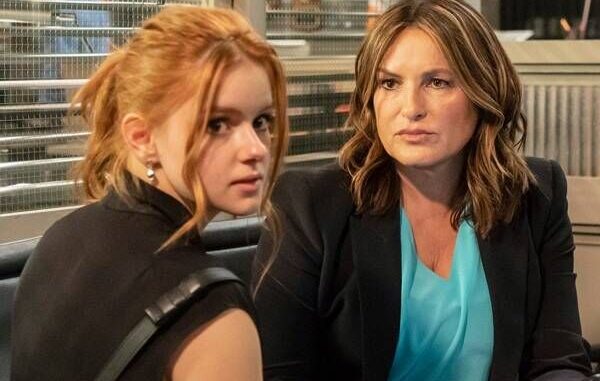
In the sprawling, often tumultuous landscape of television, few series have achieved the uncanny longevity and cultural resonance of Law & Order: Special Victims Unit. For over two decades, Dick Wolf’s iconic procedural has not merely entertained; it has held a mirror to society’s darkest corners, forcing uncomfortable conversations and evolving alongside the very issues it depicts. The enduring allure of SVU in its latest seasons is a fascinating blend of its ability to constantly generate “breaking news” within its fictional world, its strategic deployment of impactful guest stars, and the vibrant, often passionate, discussions that emanate from its dedicated global fanbase.
At the heart of SVU‘s enduring pulse is its commitment to reflecting the contemporary zeitgeist, turning “breaking news” from real headlines into compelling, often harrowing, new episodes. Unlike many long-running shows that might retreat into comfortable formulas, SVU consistently tackles the most challenging and timely social issues. In recent seasons, this has meant delving into the nuances of consent in the #MeToo era, exploring the insidious reach of online predators and deepfakes, grappling with the complexities of police reform and accountability, and confronting the mental health crisis exacerbated by societal pressures. Each new episode isn’t just another case; it’s a forensic examination of a societal ill, filtered through the lens of Captain Olivia Benson’s unwavering empathy and the squad’s relentless pursuit of justice. This commitment to staying current ensures that the show remains relevant, sparking discussions among viewers long after the credits roll, positioning SVU not just as entertainment but as a cultural barometer.
Adding layers of depth and often a chilling verisimilitude to these narratives are the meticulously selected guest stars who grace the SVU universe. The show has a storied history of attracting acclaimed actors, often known for more sympathetic roles, to embody the week’s perpetrator or victim. This casting choice is rarely coincidental; it’s a deliberate act that subverts expectations and amplifies the episode’s impact. Seeing a beloved comedic actor take on the role of a manipulative abuser, or a respected dramatic performer portray a shattered survivor, adds a palpable sense of gravity and surprise. These guest appearances aren’t just cameos; they are often pivotal performances that elevate individual episodes, making them memorable and driving home the human cost of the crimes depicted. They contribute to the “breaking news” feel by adding a sense of event television, creating watercooler moments as fans react to seeing familiar faces in unfamiliar, often disturbing, roles.
Beyond the screen, the lifeblood of SVU pulsates in the discussions and debates generated by its fervent fanbase. “What fans are talking about” is a dynamic, ever-evolving tapestry woven across social media, forums, and real-world conversations. For many, SVU is more than just a TV show; it’s a shared experience, a common ground for dissecting ethical dilemmas, speculating on character arcs, and debating the nuances of justice. The ongoing saga of Olivia Benson’s journey, her relationships (particularly the enduring “Bensler” dynamic with Elliot Stabler), and her emotional toll resonate deeply. Fans passionately discuss everything from the accuracy of police procedure to the moral ambiguities of plea bargains, from the societal implications of each case to the personal development of characters like Fin Tutuola, Rafael Barba, and Dominick Carisi. This constant hum of engagement is a testament to the show’s power, transforming passive viewing into active participation, and creating a community that, in its collective passion, amplifies the show’s cultural footprint.
In essence, Law & Order: SVU‘s continued dominance is a masterclass in adapting to the times while staying true to its core mission. Its ability to extract “breaking news” from the real world and craft it into compelling, often harrowing, new episodes keeps its narrative fresh and relevant. The strategic inclusion of diverse and powerful guest stars elevates individual stories, lending them gravitas and surprising depth. And finally, the vibrant, ceaseless conversation generated by its devoted fanbase ensures that SVU remains a living, breathing entity in the cultural consciousness. It is this symbiotic relationship between timely storytelling, impactful performances, and an engaged audience that allows SVU to not only endure but to thrive, continuing to illuminate the darkest corners of humanity while sparking vital discussions for a quarter-century and beyond.
